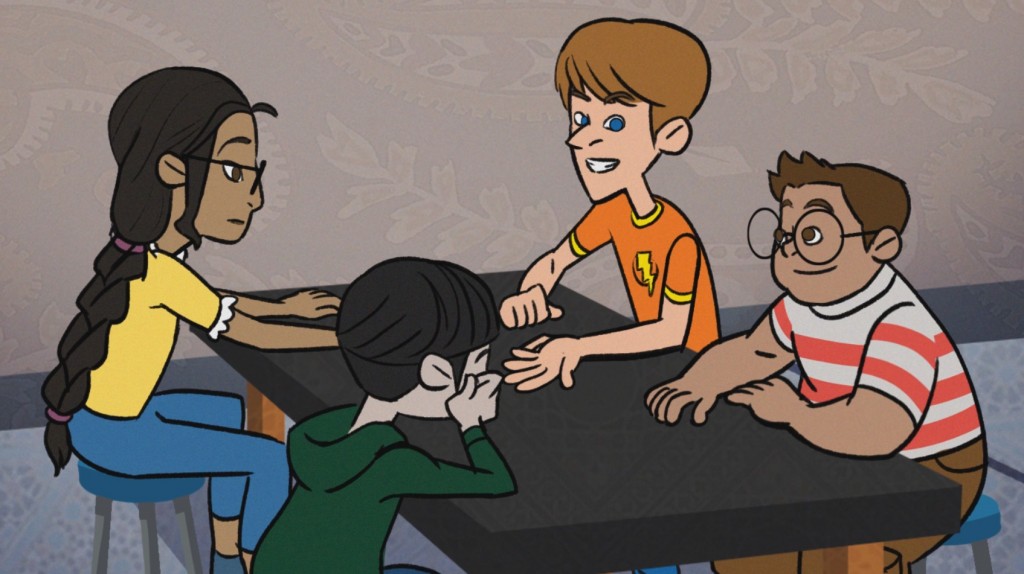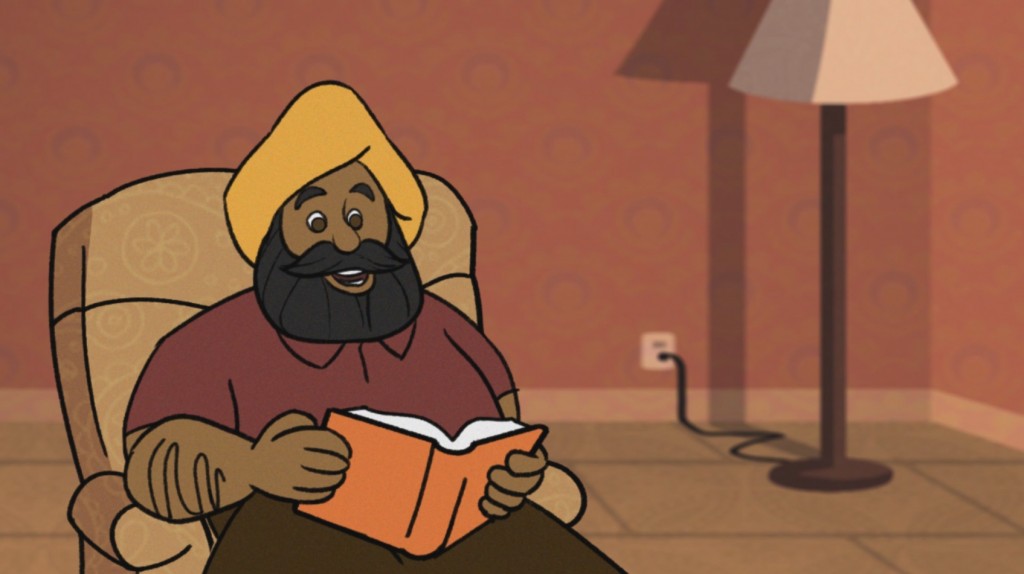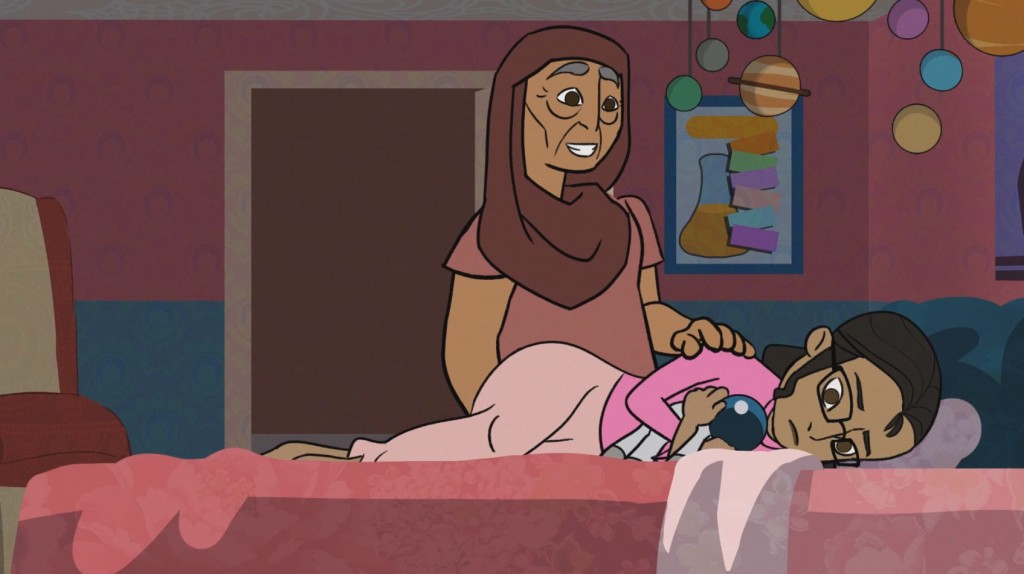Let’s look at what happens to Saibhang Kaur in KAUR
Sarah teasing Saibhang Kaur about “priorities.”
In the first school scene, Sarah invites Saibhang Kaur over to her house to listen to the new “Only U” album. But when Saibhang Kaur chooses science club over “Only U” – Sarah teases her about priorities.
Every girl is different, and different girls will naturally feel an interest in different topics. There is not one cookie cutter that every girl should fit into. Not one look, one size, one style, or one type of mind. It is OK that Saibhang Kaur has an interest in science, and it is OK that Sarah has an interest in pop music.
In the media, women are typically portrayed in very few dimensions, but real life does not work that way. We can model and teach young women to celebrate and enjoy the differences they have with each other. It’s OK that not everyone is alike. It’s OK that different girls have interest in different topics.
Science club boys ignoring Saibhang Kaur and tell her to go to cooking club
In the initial science club scene, Saibhang Kaur is excited and nervous. But when the teacher assigns her to a group that has only boys, they ignore her and then tell her she should be in cooking club.
Empowerment of young women has to involve educating them about the resistance boys have when girls enter social spaces previously reserved for “the men.” While equality is a beautiful ideal, some boys and men fight to keep women out of their perceived spaces.
We can help young women by educating them. We can tell them, “Just because a boy says you do not belong somewhere, does not mean he is right.” We can support young women to cultivate inner strength, self-trust and courage so that they can successfully face the challenge of sexism.
If a girl is bullied early in life, she might adopt a passive attitude. She may decide to avoid male dominated spaces, because she does not want to get hurt again. The reality, however, it that bullies ultimately have no power. Once a young woman finds her voice and her strength, no bully can really stop her. Her strength can see her through. A young woman who has this experience will grow up believing she can do anything.
We can empower young women by teaching them these skills:
- To find their inner strength
- To trust their intuition
- To learn to communicate
- To face, not avoid, the challenge.
Saibhang Kaur’s parents tell her not to worry about science club
When Saibhang Kaur comes home after her first day in science club, she tries to talk to her parents about what happened to her. Though they love their daughter, their response is to tell her to not worry about science. It is not something that girls need to do. The conversation with her parents leaves Saibhang Kaur wondering if she should just give up science altogether.
This is one of the most deeply-rooted, subtle aspects of sexism. And it is very under the surface. Young women learn first at home. The signals and messages they receive from their family form the core of their identity.
Oftentimes, parents will encourage sons to be strong and face a challenge, while encouraging daughters to back-out of challenging situations for their own good. This double-standard may come from a sense of love and protection towards daughters. But ultimately, it is damaging.
Every child, boy and girl, will have to face difficulties in life. Every child needs to develop skills to face those difficulties. It is something for parents to examine in themselves – what skills are they teaching their daughters? To be too weak to face a problem? To have no confidence that they can win?
Parents can empower their daughter by seeing them as equally capable of handling difficult and challenging situations as their sons. It is important to listen to one’s daughter, understand what is important to her, and then help her develop her own skills in order to achieve it.
Saibhang Kaur’s parents tell her not to worry about science club
Saibhang Kaur’s grandmother sees what has happened to Saibhang Kaur. So she sits and talks with her granddaughter about the 18th century Sikh warrior princess Mai Bhago. After hearing the story of Mai Bhago, Saibhang Kaur begins to see her problems in a different light.
We can never underestimate the power of stories. When a young woman wants to break away from stereotypes, she may wonder, “Am I the only girl who thinks or feels this way?” That sense of isolation – that she is the “only one” – may make her more reluctant to try something new.
However, when girls hear stories about the women who came before them, who also challenged the stereotypes, it takes away the feeling of isolation. Rather than being the only one, a young woman can see herself following in the footsteps of other women who faced similar challenges and succeeded. It gives the girl a feeling, “I am not alone. I am not the only one. If she can do it, I can do it.” These real life examples of women who made an important impact in the world help all young women recognize that they have it in themselves to make an impact.
Elders telling true life stories about powerful, impactful women is another way we can empower young women.




